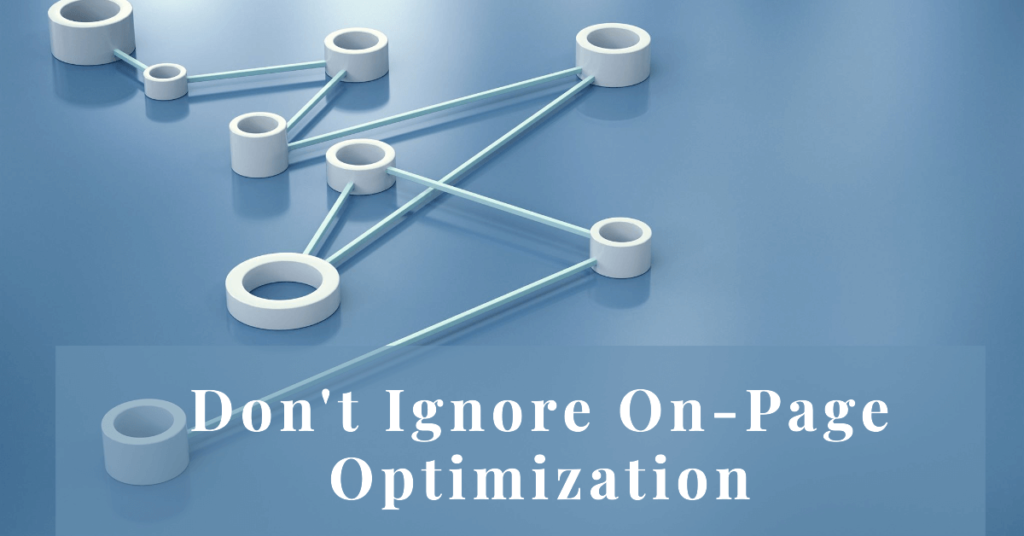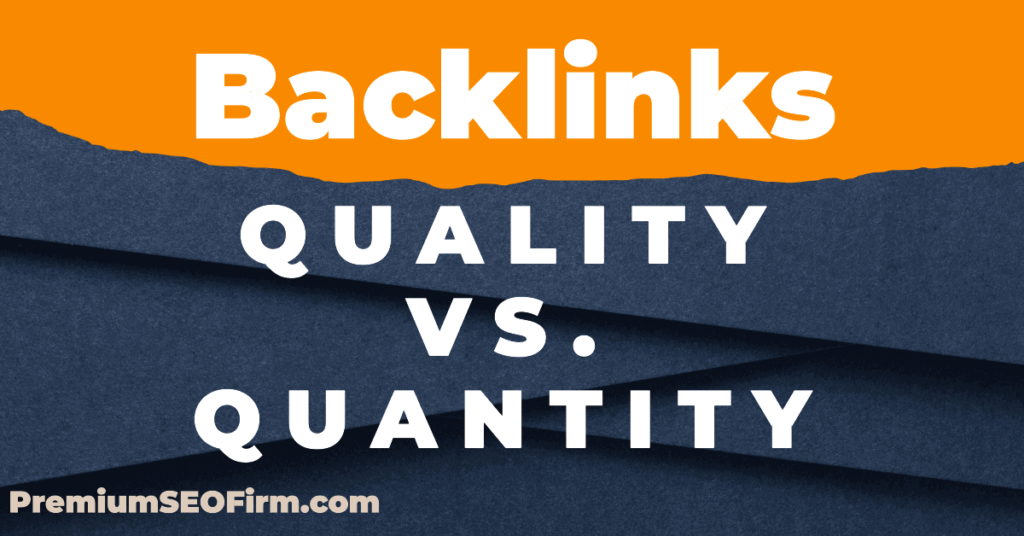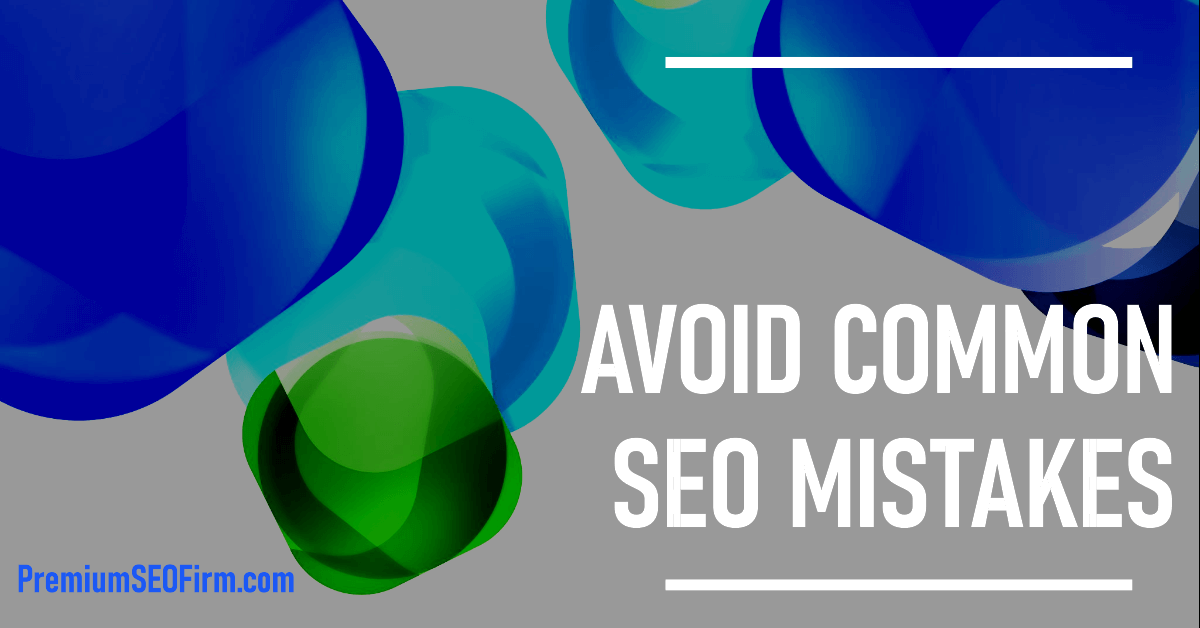Common SEO Mistakes and How to Avoid Them
In today’s world where everyone’s on their phones and computers all the time, it’s like, super important for businesses to have a great website that pops up first when you search for them. That’s what SEO, or search engine optimization, is all about. But guess what? A lot of people who run these websites and do their own marketing totally mess up with SEO and it’s like, game over for them. They can’t be found on Google, which is basically the same as not existing at all, right?
So, we’re gonna check out this big ol’ list of mistakes people usually make and tell you how to not screw up your website’s chances of being number one on the search results. It’s like a cheat sheet for not being a noob at making your site popular on the internet. Let’s dive in and learn some stuff that’ll help your website not get buried under a bunch of other random junk.
We’ll also explore the importance of seeking professional assistance from agencies offering complete SEO services to maximize your SEO efforts and stay ahead of the competition.
Avoid These Common SEO Slip-ups to Make Your Site Better on Google
So, SEO is like this super important thing for your website, right? It’s like, if you don’t get it right, your site might as well be invisible to everyone. And let’s face it, nobody wants that. So, let’s talk about some noob mistakes people make that totally mess with their site’s rankings.
Keyword Spamming / Stuffing
Okay, so keyword spamming is when you just keep repeating the same words or phrases over and over again in your website. It’s like trying to cheat on a test by writing down all the answers on your hand and hoping the teacher won’t notice. But here’s the deal: Google is way smarter than that. It sees right through it and can actually give your site a time out, which is super not cool for your rankings.
Google is like the cool teacher who knows when you’re trying to pull a fast one. If you cram too many keywords into your content, it thinks you’re just trying to game the system, and it’ll push your site way down in the search results. So, instead of stuffing your pages like a Thanksgiving turkey with keywords, just write some good stuff that makes sense and uses your keywords in a natural way.
Here’s how to not be a keyword spammer:
1. Do some homework and figure out what words people might use to find your site.
2. Make sure those words are in the important parts of your pages, like the title and headings, but don’t force it.
3. Mix it up with some other words that mean the same thing. It’s like using synonyms in an essay to not sound like a robot.
4. Think about what your site’s for and what people want from it. If you write good stuff that helps them, Google will be happy.
So, remember, Google’s like that friend who can tell when you’re just trying too hard. Don’t go crazy with the keywords. Just write some cool content that’s helpful and easy to read, and sprinkle in those keywords like they’re salt on your fries. That way, you’ll keep the algorithm happy and climb up those search engine charts like a champ.
Ignoring On-Page Optimization

On-page optimization is basically like making your website’s pages super cool so that Google and other search engines can find them easily. It’s important to do this stuff because if you don’t, it’s like throwing a party but not telling anyone about it – no one’s gonna show up!
To make your pages pop up more when people search for stuff, you’ve gotta work on a bunch of different parts of your site. It’s kinda like tuning a car to make it go faster. First, you’ve got title tags, which are like the name tags you wear at parties, but for your web pages. They should tell people what your page is about and have the main word you want to rank for.
Here are some key elements to focus on for effective on-page optimization:
- Title tags: These should accurately describe the content of the page and include your primary keyword. Compelling and descriptive titles can also improve click-through rates from search results.
- Meta descriptions: It is like a little blurb about your page that shows up on the search results. It’s not directly connected to how high you rank, but it can totally make people want to click on your link more, which is a big deal
- Headings (H1, H2, H3): Properly structured and keyword-optimized headings help search engines understand the hierarchy and organization of your content, making it easier to crawl and index your pages.
- Content: The actual content of your pages is super important too. It needs to be like, really good and interesting so that people wanna stay and read it.
In addition to optimizing these elements, consider implementing the following on-page optimization best practices:
- Make your content easy to skim with headings. Like, nobody wants to read a giant wall of text. Break it up, make it look nice!
- Throw in some pics and videos. But remember to give them those alt text and file names that describe what they are, so the search engines can see ’em too.
- There’s this thing called schema markup that’s like giving your site a VIP pass to search engines. It tells them extra info about what’s on your pages.
- Your website’s gotta be easy to get around, like a well-designed mall. Good internal linking helps with that.
- Lastly, you gotta have a fast website that works great on phones and is totally secure. Like, nobody wants to shop at a store with a slow computer and no password protection, right?
So, if you want more people to check out your website, you gotta get down with on-page optimization. It’s all about making your site user-friendly and search engine-friendly. Do that, and boom! You’re golden. Just keep making amazing content that’s perfect for the peeps you want to attract, and you’ll be climbing the ranks in no time.
Title Tag Optimization
Your title tag is one of the most important on-page elements for SEO. It serves as the clickable headline that appears in search engine results and plays a crucial role in determining whether users will visit your page or not. A well-optimized title tag can not only improve your search engine rankings but also entice users to click through to your website.
When optimizing your title tags, keep the following best practices in mind:
- Include your primary keyword or key phrase towards the beginning of the title tag for maximum visibility and relevance.
- Keep your title tags concise and descriptive, ideally within 50-60 characters to avoid truncation in search results.
- Craft compelling and attention-grabbing titles that accurately reflect the content of the page and entice users to click.
- Avoid keyword stuffing or using generic, vague titles that fail to capture the essence of your content.
- Ensure each page has a unique and relevant title tag to help search engines differentiate between your pages.
By carefully crafting and optimizing your title tags, you can improve your search engine visibility, click-through rates, and ultimately drive more qualified traffic to your website. Remember, your title tag is often the first impression a user has of your page in search results, so make it count by crafting compelling, keyword-rich, and relevant titles that accurately represent your content.
Meta Description Optimization
The meta description is the short snippet of text that appears below your page’s title in the search results. While it doesn’t directly impact search engine rankings, a well-crafted meta description can significantly improve click-through rates from search results, making it a valuable element in your on-page optimization efforts.
When optimizing your meta descriptions, consider the following best practices:
- Accurately summarize the content of the page in a concise and compelling manner, typically within 155-160 characters to avoid truncation.
- Incorporate your primary keyword or key phrase naturally within the meta description to reinforce relevance.
- Avoid duplicating the title tag verbatim and instead provide additional context or a unique value proposition that entices users to click.
- Craft meta descriptions that create a sense of curiosity or urgency, encouraging users to visit your page to learn more.
- Regularly update and refresh your meta descriptions to keep them relevant and aligned with any changes to your content.
By investing time and effort into crafting compelling and informative meta descriptions, you can improve your click-through rates from search engine results, driving more qualified traffic to your website and potentially boosting conversions. Remember, a well-written meta description can be the deciding factor in whether a user clicks on your listing or moves on to the next result, so make it count.
Additionally, meta descriptions can also provide valuable context to search engines, helping them better understand the content and relevance of your pages. While not a direct ranking factor, optimized meta descriptions can contribute to overall on-page optimization and improve the user experience for searchers, ultimately benefiting your search engine visibility.
Lack of Quality Backlinks

Backlinks, or inbound links from other websites, are a crucial ranking factor for search engines. They act as a vote of confidence in the quality and relevance of your content. However, not all backlinks are created equal, and acquiring low-quality or spammy backlinks can actually harm your rankings.
Search engines prioritize backlinks from reputable, authoritative, and relevant websites within your industry or niche. These high-quality backlinks signal to search engines that your content is valuable and trustworthy, ultimately improving your rankings.
To build a strong and diverse backlink profile, consider the following strategies:
- Create high-quality, shareable content that naturally attracts backlinks from other websites. This could include in-depth guides, research studies, infographics, or other valuable resources that provide genuine value to your target audience.
- Engage in outreach and guest blogging opportunities on authoritative sites within your niche. By contributing high-quality content to reputable websites, you can earn valuable backlinks and increase your brand’s visibility.
- Participate in industry forums, communities, and online discussions, providing valuable insights and including relevant links to your website when appropriate.
- Identify and pursue relevant, high-quality link building opportunities, such as broken link building or resource page link building.
- Monitor your backlink profile regularly and disavow any spammy or low-quality links that could be harmful.
Remember, the quality of your backlinks is far more important than the quantity. Focus on building a diverse and natural backlink profile from authoritative and relevant sources to improve your search engine visibility. Avoid any tactics that involve acquiring low-quality or manipulative links, as these can ultimately harm your rankings and reputation.
Furthermore, it’s essential to understand that building high-quality backlinks is an ongoing process that requires patience and consistent effort. Search engines value websites that consistently earn natural, high-quality links over time, as this signals authority, relevance, and trustworthiness within your industry or niche.
Slow Website Speed
In today’s fast-paced digital world, website speed is a critical factor that impacts user experience and search engine rankings. Slow-loading websites can lead to increased bounce rates, lower conversion rates, and poor search engine visibility.
Search engines like Google have explicitly stated that website speed is a ranking factor, as they strive to provide users with the best possible online experience. A slow website not only frustrates users but also signals to search engines that your site may not be providing an optimal experience.
To ensure a fast and responsive website, consider the following optimization techniques:
- Optimize images by compressing file sizes and using appropriate dimensions to reduce page load times.
- Minify and compress CSS, JavaScript, and HTML files to reduce file sizes and improve load times.
- Leverage browser caching to store static assets locally, reducing the need for repeated downloads and improving load times on subsequent visits.
- Implement a content delivery network (CDN) to serve content from servers closest to the user, reducing latency and improving load times.
- Regularly monitor and address performance issues, such as slow server response times or inefficient coding practices that may be slowing down your website.
Additionally, it’s crucial to prioritize mobile website speed, as more and more users are accessing the internet through their mobile devices. Ensuring a fast and optimized mobile experience can significantly improve user engagement, reduce bounce rates, and positively impact your search engine rankings.
By prioritizing website speed optimization, you can improve user experience, reduce bounce rates, and potentially improve search engine rankings, resulting in increased traffic and better overall performance for your website. Remember, in today’s competitive digital landscape, website speed is no longer a luxury but a necessity for providing an exceptional user experience and maintaining a strong online presence.
Neglecting Mobile Optimization
With the majority of online traffic now coming from mobile devices, ensuring a seamless and optimized mobile experience is no longer optional – it’s a necessity. Search engines like Google have embraced a “mobile-first” approach, prioritizing mobile-friendly websites in their rankings.
Neglecting mobile optimization can lead to a poor user experience for mobile visitors, resulting in higher bounce rates, lower engagement, and ultimately, lower search engine rankings. Furthermore, as more users rely on mobile devices for their online activities, failing to provide an optimized mobile experience can severely limit your website’s visibility and potential to reach your target audience.
To ensure your website is mobile-friendly, consider the following best practices:
- Implement responsive web design to ensure your website adapts seamlessly to different screen sizes and devices, providing a consistent and user-friendly experience across all platforms.
- Optimize page load times and performance for mobile devices, which often have slower connections and less powerful hardware compared to desktop computers.
- Simplify navigation and user interfaces for smaller screens, making it easy for users to find what they need with minimal effort.
- Ensure touch-friendly interactions, such as easily tappable buttons and menus, to accommodate mobile users’ gestures and input methods.
- Test your website regularly on various mobile devices and screen sizes to identify and address any usability issues or compatibility problems.
By prioritizing mobile optimization, you can provide a superior user experience for mobile visitors, improve engagement and conversion rates, and boost your search engine rankings in the process. With mobile traffic continuing to grow, neglecting mobile optimization can severely limit your website’s potential and put you at a significant disadvantage compared to your competitors who have embraced a mobile-first approach.
Remember, search engines prioritize websites that offer a seamless and user-friendly experience across all devices, so investing in mobile optimization is no longer just a recommendation – it’s a necessity for achieving and maintaining a strong online presence in today’s mobile-centric digital landscape.
Duplicate or Thin Content
Search engines prioritize websites that offer unique, high-quality, and valuable content. Duplicate content, which refers to substantively similar or identical content appearing on multiple pages or websites, can confuse search engines and dilute the authority and relevance of your content.
Additionally, thin content, or pages with minimal or low-quality content, often fails to provide value to users and can be perceived as an attempt to manipulate search engine rankings. Search engines are increasingly adept at identifying and penalizing websites with thin or duplicate content.
To avoid these issues, consider the following strategies:
- Conduct a comprehensive content audit to identify and address any instances of duplicate or thin content on your website.
- If you have similar or variations of products or services, utilize canonicalization to specify the preferred version for search engines to index.
- Create unique, high-quality, and in-depth content that provides genuine value to your target audience.
- Regularly update and refresh existing content to keep it current, relevant, and engaging.
- Implement a robust content strategy that focuses on creating authoritative, evergreen content that establishes your website as a trusted resource within your niche.
By prioritizing unique, high-quality content and addressing any issues with duplication or thinness, you can improve your website’s authority, relevance, and overall search engine visibility. Remember, search engines are constantly evolving to better understand and prioritize websites that offer substantial value to users, so investing in high-quality, unique content is essential for long-term SEO success.
Furthermore, creating valuable and engaging content can also foster a loyal audience and establish your brand as a thought leader within your industry. This can lead to increased engagement, social shares, and valuable backlinks from other authoritative websites, further reinforcing your website’s credibility and search engine visibility.
How to Avoid These Mistakes?
To avoid these common SEO mistakes and maximize your online visibility, consider seeking professional help from a reputable agency that offers complete SEO services. While it’s possible to learn and implement basic SEO techniques yourself, partnering with an experienced agency can provide you with the expertise, resources, and strategic guidance necessary to navigate the ever-changing landscape of search engine optimization.
These agencies employ teams of SEO professionals who are well-versed in the latest best practices, algorithm updates, and industry trends. By leveraging their knowledge and expertise, you can develop and execute a comprehensive SEO strategy tailored to your business goals and target audience.
Here’s why seeking professional SEO services can be beneficial for your online success:
- Comprehensive website audits and analysis: A professional SEO agency will conduct in-depth audits of your website, identifying areas for improvement, technical issues, and opportunities for optimization.
- Customized SEO strategies: Based on their analysis and your business objectives, the agency will develop a customized SEO strategy that addresses your specific needs and challenges.
- Ongoing optimization and monitoring: SEO is an ongoing process, and a professional agency will continually monitor your website’s performance, make necessary adjustments, and stay up-to-date with the latest algorithm changes and industry trends.
- Access to the latest SEO tools and technologies: Professional agencies invest in advanced paid SEO tools and technologies that can provide valuable insights, automate tasks, and streamline the optimization process.
- Expertise in navigating the complexities of SEO: SEO involves a multitude of factors, from technical aspects like website structure and performance to content creation, link building, and beyond. Professional SEO agencies have the expertise and experience to navigate these complexities effectively, ensuring that your website stays ahead of the curve and maintains its visibility in search engine results.
Additionally, partnering with a reputable SEO agency can save you time and resources, allowing you to focus on other aspects of your business while knowing that your online presence is in capable hands. With their help, you can avoid common pitfalls, capitalize on opportunities, and achieve tangible results in terms of improved search engine rankings, organic traffic growth, and ultimately, business success.
In conclusion, while SEO can be complex and challenging, avoiding common mistakes and maximizing your online visibility is achievable with the right approach and expertise. By partnering with a professional SEO agency that offers complete SEO services, you can leverage their knowledge, resources, and strategic guidance to unlock your website’s full potential and stay ahead of the competition in today’s digital landscape.
Benefits of Professional SEO Services

Working with a professional SEO agency can provide numerous benefits beyond just improving your search engine rankings. Here are some key advantages of seeking expert SEO services:
- Time and resource efficiency: SEO can be a time-consuming and resource-intensive endeavor, especially for businesses with limited in-house expertise. By outsourcing your SEO efforts to a professional agency, you can free up valuable time and resources that can be better allocated to other critical aspects of your business operations.
- Access to specialized expertise: Professional SEO agencies employ teams of experts who are dedicated to staying up-to-date with the latest algorithm changes, industry trends, and best practices. These specialists have the knowledge and experience to navigate the complexities of SEO, ensuring that your website remains compliant and competitive in the ever-evolving digital landscape.
- Comprehensive approach: A reputable SEO agency will take a holistic approach to optimizing your website, addressing various aspects such as technical SEO, on-page optimization, content strategy, link building, and local SEO (if applicable). This comprehensive approach ensures that no stone is left unturned in your pursuit of higher search engine rankings and increased organic traffic.
- Objective analysis and reporting: Professional SEO agencies provide objective and data-driven analysis of your website’s performance, allowing you to make informed decisions based on measurable results. They typically offer detailed reporting and insights, enabling you to track the progress and ROI of your SEO efforts.
- Scalability and flexibility: As your business grows and your SEO needs evolve, a professional agency can easily scale their services and resources to accommodate your changing requirements. Whether you need to expand your SEO efforts to new markets, optimize for additional keywords, or implement advanced strategies, a reputable agency has the flexibility to adapt and support your growth.
By leveraging the expertise, resources, and comprehensive approach offered by a professional SEO agency, you can gain a significant competitive advantage in the online marketplace. With their guidance and strategic implementation, you can achieve sustainable organic traffic growth, improved search engine visibility, and ultimately, increased conversions and revenue for your business.
Choosing the Right SEO Agency
While the benefits of professional SEO services are clear, it’s crucial to choose the right agency to partner with. Not all agencies are created equal, and selecting the wrong one can lead to wasted resources and subpar results. When evaluating potential SEO agencies, consider the following factors:
- Experience and proven track record: Look for an agency with a solid track record of delivering successful SEO campaigns for clients in your industry or related fields. Review their case studies, testimonials, and client portfolio to gauge their expertise and ability to drive tangible results.
- Transparent and ethical practices: A reputable SEO agency should be transparent about their methods and adhere to ethical practices that align with search engine guidelines. Avoid agencies that promise guaranteed rankings or employ black hat techniques, as these can potentially harm your website’s reputation and lead to penalties.
- Comprehensive service offerings: Evaluate the range of services offered by the agency to ensure they can meet all your SEO needs. A well-rounded agency should provide services such as technical SEO, on-page optimization, content marketing, link building, local SEO (if applicable), and ongoing reporting and analysis.
- Responsive and effective communication: Effective communication is crucial for a successful SEO partnership. Look for an agency that prioritizes clear and responsive communication, providing regular updates, addressing your concerns, and collaborating closely with your team.
- Competitive pricing and flexible packages: While pricing should not be the sole deciding factor, it’s important to find an agency that offers competitive rates and flexible packages tailored to your budget and specific requirements. Be wary of agencies that offer suspiciously low prices, as this may indicate subpar services or a lack of experience.
By carefully evaluating potential SEO agencies based on these factors, you can increase your chances of finding a reliable and capable partner that can help you achieve your online marketing goals and maximize your return on investment.
Remember, a successful SEO campaign requires a long-term commitment and a strong partnership between you and your chosen agency. Take the time to thoroughly research and vet potential agencies to ensure you find the right fit for your business needs and objectives.
